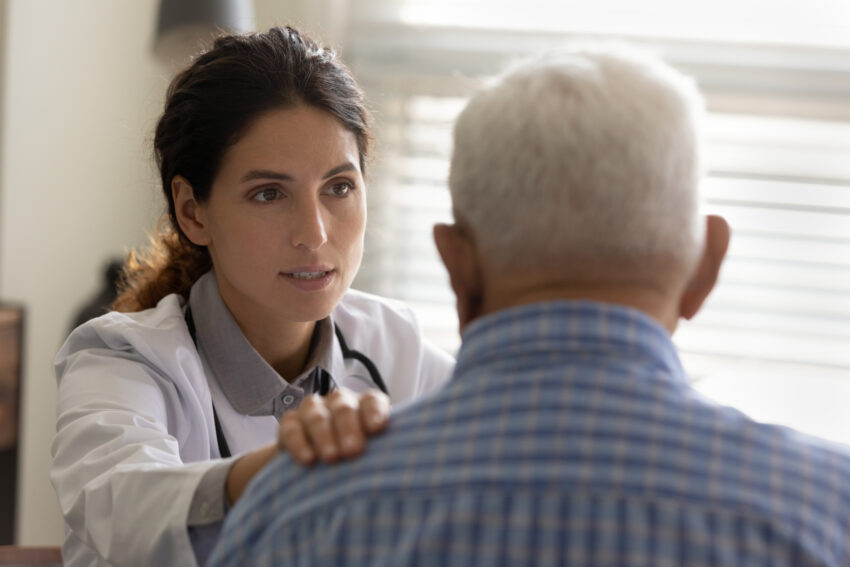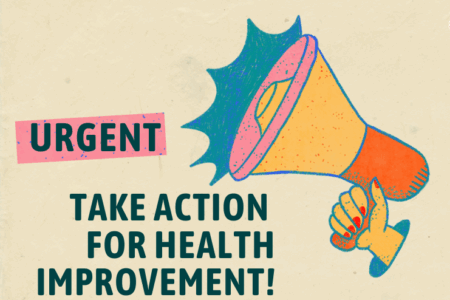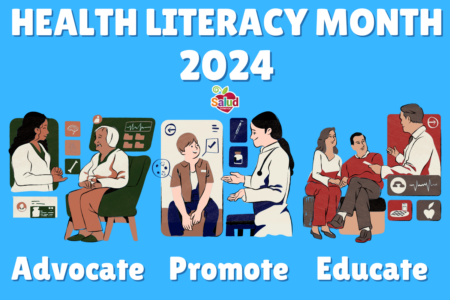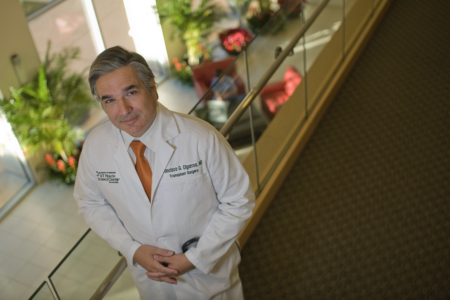
Share On Social!
Every month the Salud America! team at the Institute of Health Promotion Research (IHPR) at UT Health San Antonio showcases the latest health news, clinical trials, research study results, and stories impacting the Latino community.
Salud America! is led by Dr. Amelie G. Ramirez.
“Our mission is to inspire people to drive change for health improvement for Latino and all families,” said Ramirez, professor and director of the IHPR at UT Health San Antonio.
In August, Salud America! helped celebrate an achievement in collaboration with Genentech, shared back to school resources, covered inequities in Latino healthcare and chronic diseases, and much more!
Let’s take a deeper dive into some of the topics, news, and stories published in July that are making waves in the Latino community.
1. Survey Reveals How Latinos Feel About Preventative Healthcare
One of the biggest hurdles to health improvement for Latinos is access to preventative care such as regular health screenings, cancer screenings, and more.
These hurdles include negative perceptions based on background, limited access to health clinics, lack of insurance, and more.
The second annual Wellness Matters Survey published by Aflac explored some of these hurdles and how attitudes toward preventative care affect the health outcomes of Latinos and other vulnerable groups.
The survey revealed that 64% of Latinos skipped recommended health screenings, such as colonoscopies, mammograms, and more, and discovered that Latinos rely on friends and family intervention to seek care.
2. New Test Could Open Doors for Latinos with Dementia

Innovation is a key component in advancing healthcare for all.
This month researchers made major strides in Alzheimer’s and dementia, and colorectal cancer healthcare, with two new tests.
Given the fact that Latinos are impacted by Alzheimer’s and dementia, Salud America! brought attention to a recently approved test that could help improve cognitive care for dementia patients.
The 5-Cog takes five minutes to complete and could help identify cognitive issues and create opportunities for diagnosis and treatment of the condition, according to a news release from the National Institute of Health (NIH).
3. Keep an Eye on Your Child’s Health
This month parents across the country prepared to send their children back to school.
Part of getting ready for the upcoming school year was checking up on their health by updating vaccines, such as the COVID-19 and flu vaccines, and scheduling a wellness visit with their physicians.
Another important activity to cross off the back-to-school list is paying a visit to the eye doctor for a regular screening.
Proper eye care can make a difference in school performance, children’s mental health, and physical health caused by eye strain.
Prioritize your child’s eye health and set them up for a successful school year!
4. Tweetchat Focuses on Latino Cancer Outcomes
Cancer continues to be one of the leading causes of death in Latinos with cases of Latino cancer expected to rise by 142% in the coming years.
Given the high rates of cancer in Latinos, Salud America! sharing resources and ways to help close the gaps in Latino cancer care by hosting an upcoming Tweetchat.
On Sept. 3, 2024, ahead of Hispanic Heritage Month, the Tweetchat focuses on hurdles to cancer care, support, and clinical trial participation.
Use #SaludTues on Twitter/X to join Public Health Maps, Prevent Cancer Foundation, Dr. Dulce María Ruelas, the National Hispanic Medical Association (NHMA), Susan G. Komen, and Cancer Hope Network for the tweetchat, “Creating Better Cancer Outcomes for Latinos.”
5. Clinical Trial Video Wins Big
Latinos continue to be limited in clinical trials for chronic illnesses and diseases such as cancer.
This difference in clinical trial participation prevents researchers from learning about different therapies, interventions, and treatments that could work for Latinos, who are more impacted by these diseases.
To shine a light on this, Genentech collaborated with the Institute for Health Promotion Research at UT Health San Antonio, the team behind Salud America!, to bring awareness to why Latinos and all people should participate in clinical trials to create the bilingual video — Why Hispanic … Matters.
This video was recently declared a “Silver Winner” at both the 2024 W³ Awards and the 45th Annual Telly Awards!
6. Chronic Pain Clinical Trials Need Latinos
Latinos are largely left out of clinical trials, which could help researchers find therapies, interventions, and treatments.
Without being tested on Latinos, there is no way of telling if these benefits will work on Latinos.
Latino volunteers are especially needed for clinical trials on chronic pain.
A recent study published by the National Institutes of Health and funded by the National Center for Complimentary and Integrative Health revealed that chronic pain clinical trials included 8% less Latinos.
Latinos can help close the gap on clinical trial participation by visiting Salud America!’s clinical trial page or by exploring clinical trial opportunities based in San Antonio through the Mays Cancer Center at UT Health San Antonio’s Find a Clinical Trial database.
Learn more about national opportunities by visiting clinicaltrials.gov.
7. Check Out the Latest IHPR Clinical Trial
Volunteer for the Avanzando Caminos study at UT Health San Antonio! Avanzando Caminos.
The Avanzando Caminos (Leading Pathways): Hispanic/Latino Cancer Survivorship Study aims to enroll 1,500 Latino cancer survivors in South Texas to help unpack the social, behavioral, mental, biological, and medical influences on post-cancer life.
The study, led by Dr. Amelie Ramirez of UT Health San Antonio and Mays Cancer Center, is looking for Latino survivors age 18 or older who have completed primary treatment for breast, colon, kidney, liver, lung, prostate, stomach or cervical cancer.
Volunteers participate in seven study visits over five years, each with assessment interviews, and some with blood draws. Participants are also eligible to earn $50 per visit.
Visit the Avanzando Caminos website to fill out a prequalification form and member of Dr. Ramirez’s team at the Institute for Health Promotion Research at UT Health San Antonio will be in touch or call the team at 210-562-6514.
Explore More:
HealthBy The Numbers
25
years
of life expectancy between some U.S. cities.




… [Trackback]
[…] Read More: salud-america.org/dr-francisco-g-cigarroa-the-first-latino-chancellor-of-the-university-of-texas-system/ […]